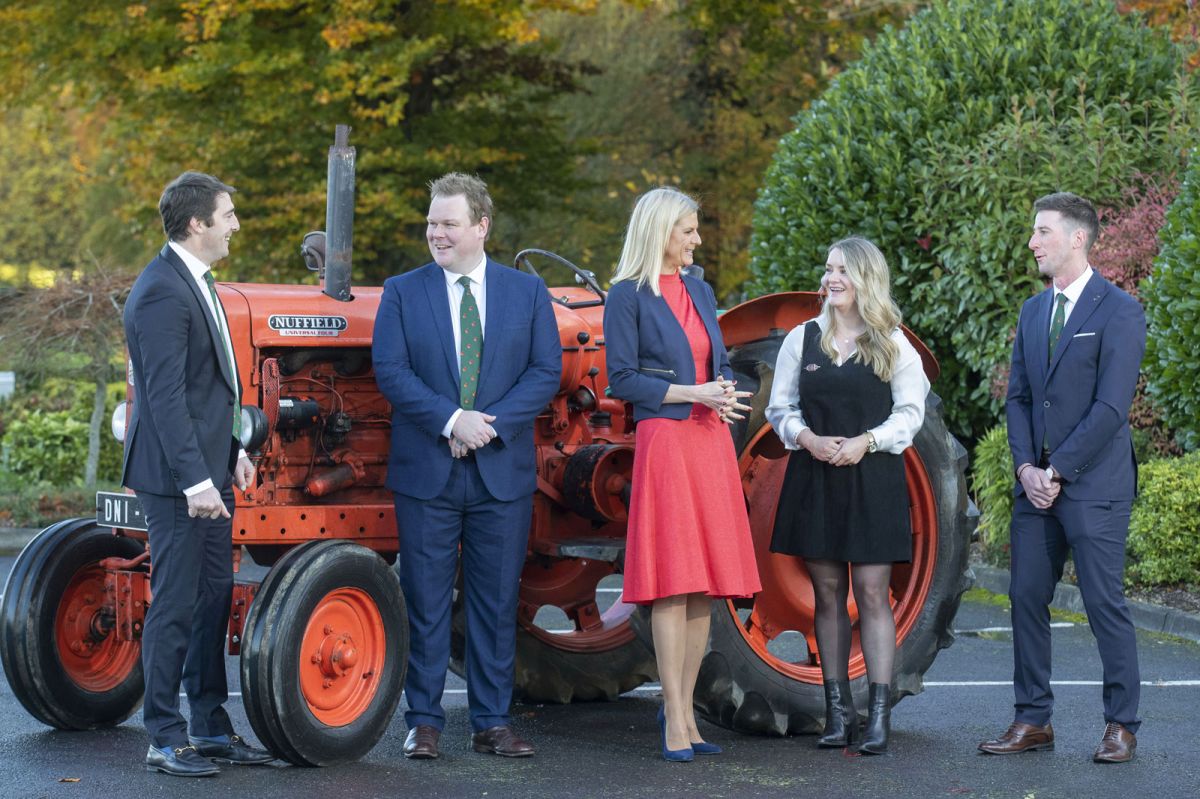Agri sector encouraged to ‘be brave’ on environmental issues

The keynote address delivered by agri-communication expert and UK Nuffield scholar, Dr Amy Jackson, director of Oxtale, encouraged the agri community to focus on building relationships, being accountable and being fully transparent in order to continue to be granted the social license to farm.
The event was officially opened by Minister of State for Land Use and Biodiversity in the Department of Agriculture, Food and the Marine, Pippa Hackett who acknowledged the role that Nuffield Ireland scholars can play in meeting our ambitious environmental targets.
She said: “Past, present and future Nuffield scholars are, and will continue to be, at the centre of developing and implementing the ideas and innovations that will shape Irish farming in the years to come. Improved practices – and critically – communication outside of the farming sector of the impact of those practices, will help us to find common ground. And that communication is a two-way exercise: by listening to the concerns of consumers and urban communities, we can inform how we respond to those concerns, both in our actions and in our words.”
Social license
In her keynote, Dr Jackson highlighted the importance of engaging with citizens in a way that connects with them, ideally through people who are like them, in order to build trust.
“We cannot expect the world to change around us, we need to be part of that change. However, we need to engage on society’s terms and not our own. Being willing to come to the table is not enough. What we really need to think about is how we can take charge to bring people to our table in order to develop trust, accountability, and transparency to start to be in control of the issue.
“The simplification of information, which has been further heightened through social media, is creating biases as people are making quick decisions based on headlines. We try to educate but this is assuming all people process information in the same way. What we really need to do is to have more nuanced conversations with the public and meet on middle ground and that will involve the farming industry changing too. Exposing ourselves to criticism and challenge to change can feel like we are losing control but it is actually the opposite as we can do it proactively on our terms.”
Remembering Padraig Walshe
In a special intimate conversation, Irish Farmers Monthly editor, Matt O’Keeffe and Matt Ryan, two friends of the former Nuffield Ireland scholar, Padraig Walshe discussed the legacy of the late agri-leader. Attendees heard of a life dedicated to leadership and service to agriculture and his fellow farmers. And a new award in honour of Padraig was presented to the best presenting scholar at the conference. This inaugural award went to Lance Woods, ruminant marketing manager with MSD Animal Health.
Valuable research
Throughout the day attendees also heard presentations from the four 2022 Nuffield Ireland returning scholars summarising their research. First up Pat Collins, a dairy farmer from Castlemartyr in Cork presented his findings on the benefits of integrating dairy beef and crop production. His study highlighted how dairy-beef and crop production integration can lead to; a more environmentally sustainable way of farming, profitable farming, and better use of fixed assets and labour.
David Dolan, a dairy farmer from Claremorris in Mayo, presented his research on the challenges and opportunities for farmers and co-ops in achieving net zero carbon emissions. According to David, the practice of purchasing carbon credits erodes trust and confidence in legitimate sustainability initiatives, making it harder for consumers to make informed choices. He believes that to maintain the integrity of Irish agricultural sustainability claims, it is important that robust frameworks are put in place that include life cycle analysis of all farm inputs.
A policy officer in agriculture, nature and food quality for the Netherlands Embassy, Aoife Feeney’s research explored how farmers can be encouraged to prioritise on-farm action for water quality. She highlighted how water quality is a global issue but water scarcity is a major growing concern. She believes that this reality should encourage us as a nation, with a plentiful supply of fresh water, to enhance and protect its quality for future generations.
The final presentation was delivered by Lance Woods, a ruminant marketing manager with MSD Animal Health. His topic explored how animal health can positively impact our climate change targets. Through his studies, Lance investigated how emissions could be reduced by ensuring good animal health while exploring how farmers can change behaviours at farm level to achieve this. The findings highlight that if farmers embrace animal health and husbandry technologies it can reduce emissions.





